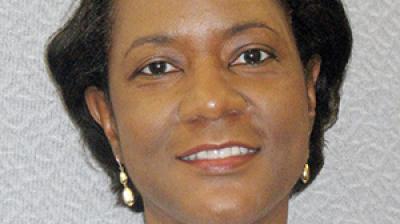
To the casual observer, Daphne Berry’s path from electrical engineer to management scholar might not seem direct. But Berry says it made perfect sense.
“I was doing only technical work as an engineer,” she says. “I moved into management so that I could have an impact on what my co-workers and I were doing. That’s how I became interested in the study of management.”
The shift in Berry’s responsibilities at work led her to academia. She earned a Ph.D. in management from the University of Massachusetts Amherst and eventually became an associate professor of management at the University of Hartford’s Barney School of Business.
Along the way, she developed a research interest in employee-owned workplaces and worker cooperatives. She has received multiple fellowships from The Rutgers Institute for the Study of Employee Ownership and Profit Sharing at the School of Management and Labor Relations (SMLR).
With the support of the 2011-12 J. Robert Beyster Fellowship, Berry collected data from more than 600 home health care workers in New York City — almost exclusively women — some employed by a co-op, some by a nonprofit, and some by a for-profit agency, to explore whether there were substantive differences in worker satisfaction and productivity, both of which, Berry says, have a direct impact on patient care as well as company success and profitability.
Berry says that although workers in all three business structures received low compensation, workers in the co-op had a markedly higher sense of empowerment. Additionally, because those workers had a say in their working environments, they benefited from ongoing training.
“Workers in the nonprofit and for-profit companies were statistically similar in terms of job satisfaction and commitment to the companies, but the co-op workers’ job situations were definitely better.”
Although there is ample evidence that workers in employee-owned companies are more motivated and productive and more invested in the success of the business, Berry says that there may be a number of reasons why this management structure is not more widespread in the United States.
“For one thing, it’s hard,” she says. “If I am a senior member of an organization and something major needs to be done, I have to have the organization vote on it. It’s going to take longer than if I were in a traditionally-managed company. In addition, something that I believe needs to be done might be voted down. Company decision makers would have to really believe in it benefiting everyone in the long run to be willing to facilitate a participatory work environment such as that.”
Berry wants her students at the University of Hartford to come away with an accurate picture of non-traditional management systems. For the past few years, she has taught a mini-course that culminates in a trip to Mondragon in the Basque region of Spain, home of the Mondragon Cooperative Corporation.
The world’s largest group of worker-owned cooperatives, Mondragon employs more than 75,000 people in several hundred companies. Mondragon owns its own bank, university, social welfare agency, business incubators, and supermarket chain, and it has been largely immune to many of Spain’s recent financial woes. Berry says her students get exposure to a different way of doing business on a larger scale.
“[Cooperatives are] for-profit businesses, but at the same time, they keep in mind sustainability for the environment, for employee jobs and benefits, and for livelihoods for the next generation.”
Meanwhile, Berry’s association with Rutgers continues to grow.
She received a 2016-17 W.K. Kellogg Fellowship as part of a large, multi-disciplinary research team exploring how Employee Stock Ownership Plans (ESOPs) affects the financial security of modest-income workers and their families. Completed in 2019, the study found that ESOPs narrow gender and racial wealth gaps by enabling workers to build significant wealth.
Most recently, Berry received a 2019-20 Robert W. Edwards Fellowship to conduct a multi-year study of B Corporations and social enterprises with ESOPs.
This is the fifth installment in a new series exploring the work of Research Fellows in SMLR’s Fellowship Program on Employee Ownership and Profit Sharing.

Daphne Berry, an associate professor of management at the University of Hartford, has received multiple research fellowships from SMLR’s Institute for the Study of Employee Ownership and Profit Sharing.


